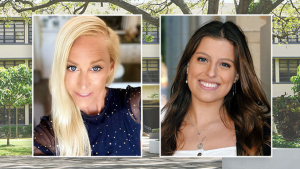
Proteins are like tiny machines in our bodies, helping with almost everything we do, including breaking down food, carrying messages between cells, and building and repairing tissues, like muscles and skin.
Protein folding is a protein's way of twisting and bending into the right shape so it can do its job correctly in the body. However, when protein folding goes wrong, it can have detrimental consequences. Misfolded proteins may fail to perform their intended functions or adopt harmful structures that interfere with normal cellular processes. These misfolded proteins can accumulate in cells, leading to various diseases, such as Alzheimer's disease, cystic fibrosis, cancers and more. In Alzheimer's, misfolded proteins mold into toxic plaques that disrupt neuronal function.
The new book by University of Hawaiʻi at Mānoa Department of Chemistry researchers Protein Folding, published by the American Chemical Society, is a comprehensive publication that delves into the intricate world of protein folding. Authored by chemistry PhD candidate Grace E. Orellana, and Assistant Professor Ellinor Haglund, the book provides a thorough overview of the fundamental principles governing protein folding, from basic concepts to advanced theories. With a focus on both experimental techniques and theoretical frameworks, Orellana and Haglund explore the dynamic process of protein folding, shedding light on the key factors that influence folding pathways and kinetics.

"By understanding protein folding at a fundamental level, researchers can unlock new avenues for biomedical research and drug discovery, hopefully leading to improved treatments for protein misfolding-related diseases," Orellana and Haglund said.
The Department of Chemistry is housed in the College of Natural Sciences.






